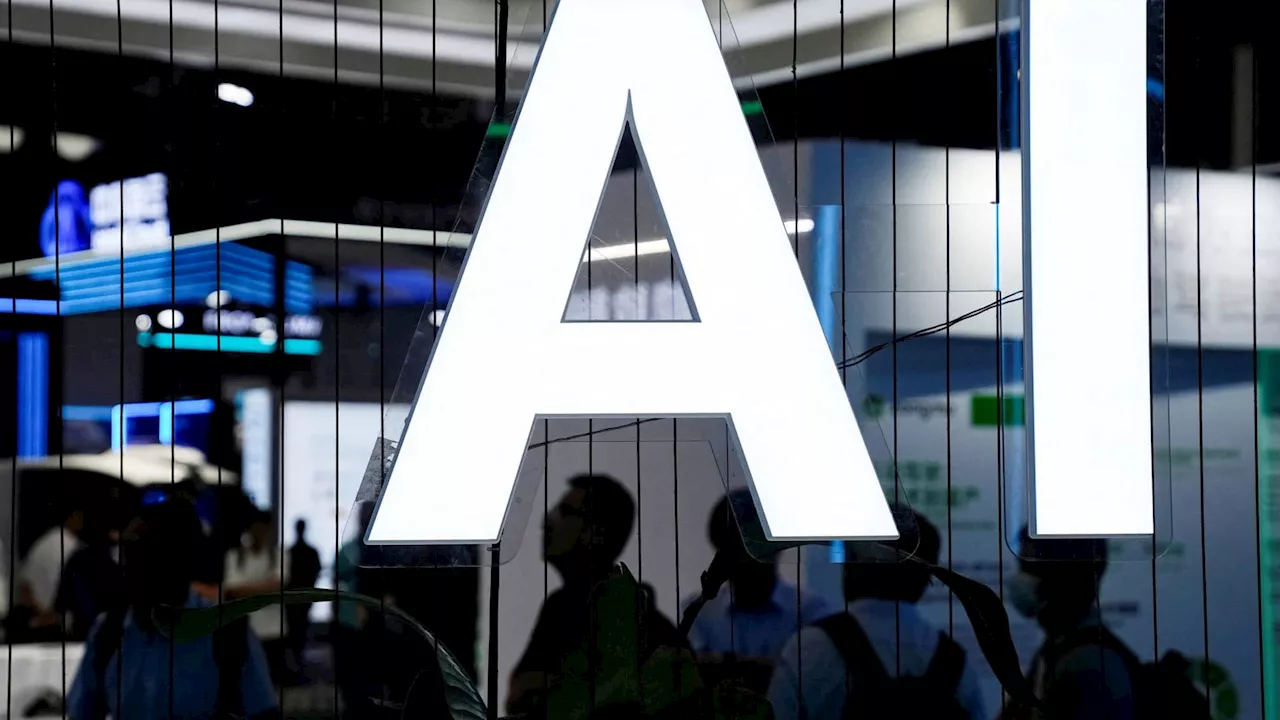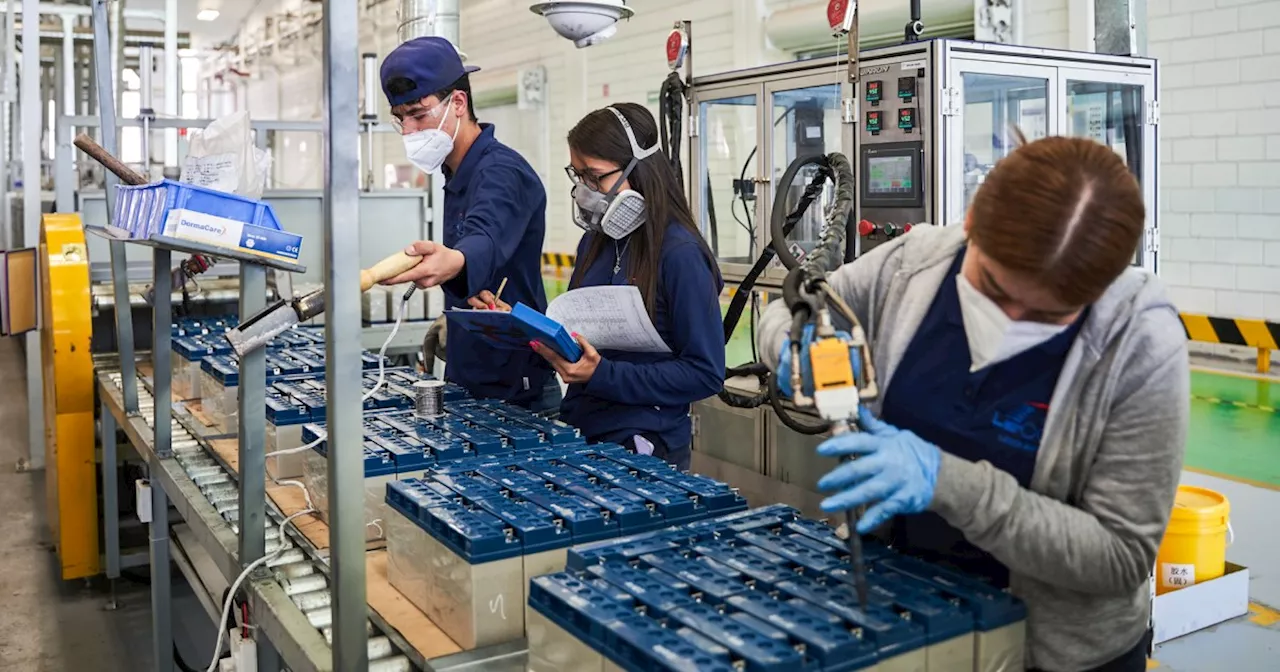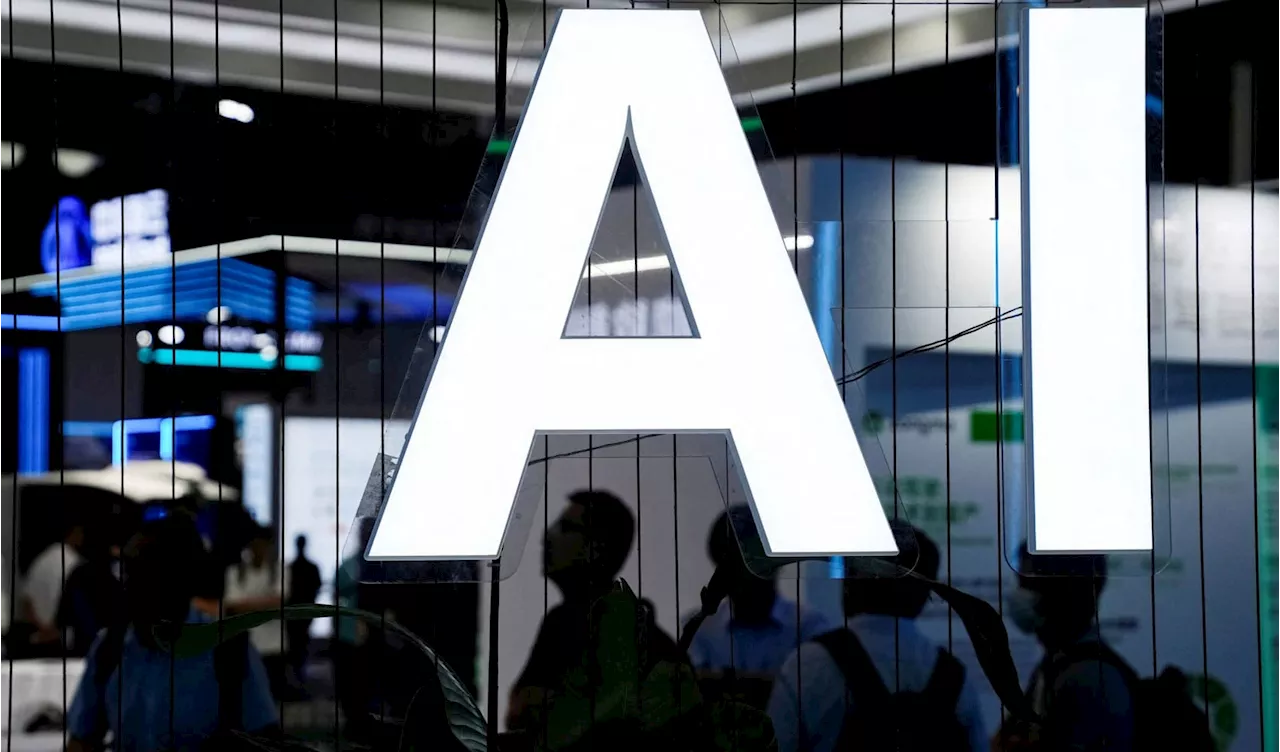China's AI sector is experiencing explosive growth, with companies rapidly developing innovative applications beyond chatbots. From business tools to smartphone features, AI is transforming various industries. This text explores the rapid advancement of Chinese AI, highlighting key developments, challenges, and the unique regulatory landscape.
A surge of releases last week highlighted the rapid advancement of Chinese companies in developing artificial intelligence (AI) models that rival OpenAI's ChatGPT. This momentum is now extending beyond chatbot applications as numerous companies are leveraging these foundational AI models to create innovative products.
On the business front, Gartner research director Ben Yan estimates that over 10% of businesses in China are currently utilizing AI, a significant increase from 8% just six months ago. This rapid adoption rate indicates that China's AI sector is progressing at a pace comparable to the United States. Jo Huang, head of private equity at Raffles Family Office, echoed this sentiment in an email, stating, 'We believe that China's AI sector is advancing at a pace comparable to that of the United States.' Her firm is actively considering investments in a leading China AI deep tech fund to capitalize on this burgeoning local opportunity. Chinese companies are also integrating AI capabilities into their existing products and services. For instance, the Chinese tech giant Baidu announced that its generative AI-integrated Wenku platform, designed for creating presentations and other documents, has reached 40 million paying users. Baidu reported a 60% year-over-year revenue increase for Wenku as of the end of last year. The platform has recently rolled out updated features, including AI-powered presentation generation based on a company's financial filings. AI agents, which are more advanced than traditional AI models focusing on specific tasks, are also gaining traction in China. These agents can automate entire processes, from search to booking. Tencent, the parent company of WeChat, plans to integrate AI agents into its messaging and social media app, as CEO Pony Ma revealed in a January 13th speech. Meanwhile, Chinese smartphone manufacturers like Honor, Xiaomi, and Vivo have made strides in enhancing the user experience of AI features within their devices. They have achieved this by optimizing AI models for on-device processing, minimizing reliance on cloud services. This development contrasts with Apple, whose AI-powered features have yet to reach iPhone users in China. Regulatory differences between China and the U.S. also play a role. While AI models in China require official certification for use, integrating them into applications is significantly more straightforward. Alex Lu, founder of Shanghai-based LSY consulting, points out this distinction. He is developing an AI-powered tool that provides companies with daily insights on industry trends and global regulations, similar to human consultants. Despite the progress, challenges remain. One key hurdle is persuading companies to grant AI access to proprietary data or utilize AI-generated content commercially. Chris Reitermann, CEO of Ogilvy Asia-Pacific and Greater China, expresses caution about these issues, particularly regarding copyrights and legal concerns. He notes that clients attempting to use AI for marketing campaigns have encountered compliance obstacles hindering project launches
Artificial Intelligence China Chatgpt AI Applications Business Tools Smartphone Features Regulatory Landscape AI Agents Generative AI
United States Latest News, United States Headlines
Similar News:You can also read news stories similar to this one that we have collected from other news sources.
 China's AI Boom: From Chatbots to Agents and BeyondChinese companies are rapidly developing AI applications that surpass chatbot functionality, focusing on areas like business intelligence and e-commerce. The regulatory landscape in China fosters innovation, but challenges remain in data sharing and commercial utilization of AI-generated content.
China's AI Boom: From Chatbots to Agents and BeyondChinese companies are rapidly developing AI applications that surpass chatbot functionality, focusing on areas like business intelligence and e-commerce. The regulatory landscape in China fosters innovation, but challenges remain in data sharing and commercial utilization of AI-generated content.
Read more »
 China's AI Surge: Beyond Chatbots and Into the FutureChinese companies are rapidly developing AI applications that go beyond chatbot functionality, impacting business, consumer technology, and regulatory landscapes.
China's AI Surge: Beyond Chatbots and Into the FutureChinese companies are rapidly developing AI applications that go beyond chatbot functionality, impacting business, consumer technology, and regulatory landscapes.
Read more »
 Boom Boom, Oopi, & More Fun & Unique Grandparent Names Used by CelebritiesIf you have a grandbaby on the way, your kids are probably spending ages looking at baby name trends and waiting for inspiration to strike. There are probably text threads and Pinterest boards that they've dedicated solely to picking out the little one's moniker. And, for some families, there's baby name drama brewing.
Boom Boom, Oopi, & More Fun & Unique Grandparent Names Used by CelebritiesIf you have a grandbaby on the way, your kids are probably spending ages looking at baby name trends and waiting for inspiration to strike. There are probably text threads and Pinterest boards that they've dedicated solely to picking out the little one's moniker. And, for some families, there's baby name drama brewing.
Read more »
 China's electric car boom is increasingly more about hybridsHybrid-powered vehicles are proving more popular than battery-only ones in China, even as consumers shift away from gas-only cars, full-year data show.
China's electric car boom is increasingly more about hybridsHybrid-powered vehicles are proving more popular than battery-only ones in China, even as consumers shift away from gas-only cars, full-year data show.
Read more »
 China's electric car boom is expected to slow down in 2025China’s electric car market is headed for a sharp slowdown in 2025, according to analyst predictions, increasing pressure on companies trying to survive.
China's electric car boom is expected to slow down in 2025China’s electric car market is headed for a sharp slowdown in 2025, according to analyst predictions, increasing pressure on companies trying to survive.
Read more »
 Trump’s China tariff threats are helping fuel a manufacturing boom — in MexicoShannon Pettypiece is senior policy reporter for NBC News.
Trump’s China tariff threats are helping fuel a manufacturing boom — in MexicoShannon Pettypiece is senior policy reporter for NBC News.
Read more »
